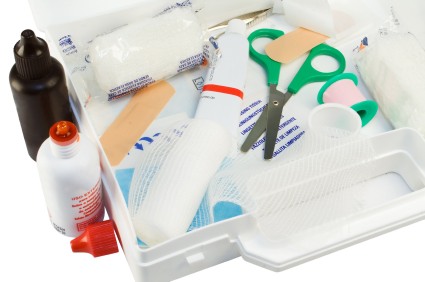It was on. We were going ahead with the baby.

Trip to the Gynaecologist [Illustration by Shiju George]
After that initial stay on cloud nine, saner thoughts took over, like when to plan a trip to the gynaecologist. Also, how many people would come with us, and which day would be suitable for all of us to go to the clinic.
Typically, like most people who live away from their roots, we needed the supporting presence of some family members when we walked into the doctor’s clinic. It’s another matter that only I and the husband went into the doctor’s chamber, while the others sat outside and waited for us.
Why did we need that supporting presence, I now ask myself. On reflection, I come to the conclusion that it was important for us to have the family around, considering all of us had our own notions about what the gynaecologist would say. Or do. Whether he would poke and prod to see if I was pregnant, check on the fetus, or decide whether I could continue working, whether I should bring about some discipline into my erratic lifestyle… so many questions kept popping up in my mind.
The gynaecologist was not even a remote image of what I had thought he would be like. He neither poked, nor prodded. Only talked.
That was all I needed, he said, at least now. He said his job was to make sure that the child and I were safe, and the only way he could do it was by convincing us that we should not pay attention to advice that would soon start pouring in from all quarters — from people who have had babies, from people who have not had babies, and from people who have been with people who have had babies… Sometimes, these little nuggets of advice could be really dangerous, he warned.
Besides that I would have to take a few tests to see whether everything else was fine. “That’s all?” I asked, almost disappointed.
He said I could continue with my erratic lifestyle, so long as I made sure I got enough rest after work. And, I could travel too, even in auto rickshaws. Bumpy rides would not lead to a miscarriage unless there was something already wrong with the fetus, he assured. In which case, it would abort itself even if I didn’t go on a bumpy ride. “Actually, you could have a miscarriage, if the fetus cannot fight for its survival,” he added.
I squinted.
“Unlike what is normally believed, the mother’s body does not actually welcome the foreign element’s (fetus’) presence in her body. The fetus, in the first three months, has to fight against the mother’s rejection to survive,” he explained.
“It’s like any other host-parasite relationship,” he said in a matter-of-fact manner.
My mouth fell open.
But I recovered soon. “Is this why I am nauseous. Because my body doesn’t want the child.”
The doctor laughed. “No, that’s because pregnancy activates hormones that affects that part of the brain which also controls the senses.”
Couldn’t something be done about it?
“Well, you want a child. You have to go through it,” he chuckled.
Then, on a more serious note, “What you could do is stay away from stimuli that trigger a bout of nausea.”
“And no medicines, please,” he cautioned (except folic acid, of course, which was supposed to rule out any abnormalities in the fetus).










